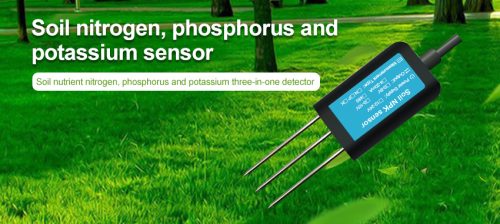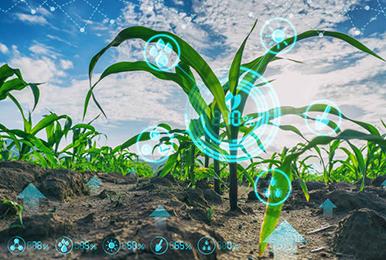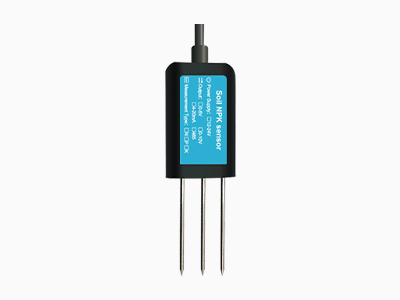In recent years, under the impetus of the efficient crop production demand, the agricultural industry to the development of precision agriculture. NPK sensor is one of the key technologies in this field, which plays a key role in optimizing fertilization and increasing crop yield. This article delves into the significance of NPK sensors, their working principles, applications, and the transformative impact they have on modern agriculture.
Understanding NPK Sensors

NPK sensor are devices that specifically measure the levels of essential nutrients – nitrogen (N), phosphorus (P) and potassium (K) – in soil. These nutrients are critical for plant growth and development, and their availability directly influences crop productivity. NPK sensors utilize advanced technologies such as spectroscopy, electrochemical analysis, and ion-selective electrodes to accurately quantify the nutrient levels in the soil, providing farmers with valuable insights for precise fertilization strategies.
Significance in Precision Agriculture
NPK sensor change the concept of precision agriculture, enabling farmers to make data-driven decisions about fertilization. By precisely determining the nutrient status of the soil, these sensors empower farmers to tailor fertilizer treatments to match the specific requirements of their crops, thereby minimizing waste and environmental impact while maximizing yield. This targeted approach not only optimizes resource utilization but also contributes to sustainable farming practices.
Working Principles of NPK Sensors

NPK sensors employ various methodologies to assess soil nutrient levels. Spectroscopy-based sensors utilize light absorption or emission properties to quantify nutrient concentrations, while electrochemical sensors measure nutrient ions through electrochemical reactions. Ion-selective electrodes selectively detect specific ions, enabling accurate measurement of individual nutrient levels. These diverse technologies collectively contribute to the reliability and precision of NPK sensor readings.
Applications in Modern Agriculture

The applications of NPK sensors extend across diverse agricultural settings, including arable farming, horticulture, and precision greenhouse cultivation. These sensors are instrumental in guiding variable rate fertilization, where fertilizers are applied at varying rates across a field based on real-time soil nutrient data. Additionally, NPK sensors facilitate soil health monitoring, enabling early detection of nutrient deficiencies and imbalances, thereby allowing proactive corrective measures to be implemented.
Impact on Crop Productivity and Environmental Sustainability
The integration of NPK sensors into agricultural practices has yielded substantial benefits in terms of crop productivity and environmental sustainability. By ensuring precise nutrient management, these sensors contribute to improved crop quality and yield, enhancing the overall profitability of farming operations. Furthermore, the optimized use of fertilizers driven by NPK sensors minimizes nutrient leaching and runoff, mitigating environmental pollution and promoting sustainable land stewardship.
Challenges and Future Developments
While NPK sensors have demonstrated remarkable potential, challenges such as cost, calibration, and data interpretation remain pertinent. Addressing these challenges will require ongoing research and development efforts to enhance sensor accuracy, affordability, and user-friendliness. Future advancements may involve the integration of NPK sensors with autonomous agricultural machinery and the development of real-time data analytics platforms to further streamline precision farming practices.
Conclusion
NPK sensor represent a paradigm shift in modern agriculture, offering farmers the tools to optimize nutrient management and enhance crop productivity. As the agricultural industry continues to embrace precision farming, the role of NPK sensors in enabling sustainable, efficient, and data-driven agricultural practices will become increasingly pivotal. With ongoing technological advancements and industry-wide adoption, NPK sensors are poised to revolutionize the future of agriculture, ensuring food security and environmental stewardship for generations to come.
